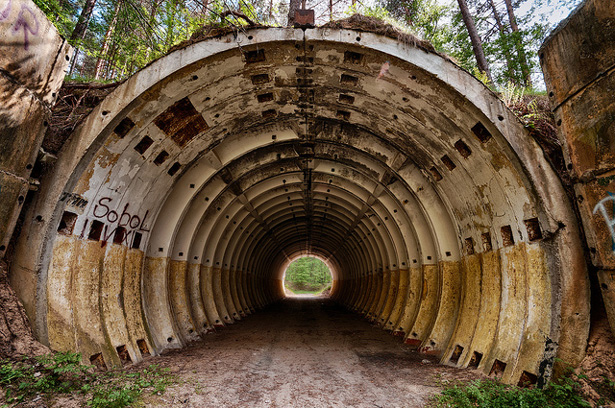-
Environmental Security: A Guide to the Issues (Book Preview)
July 1, 2013 By Elizabeth L. Chalecki
I remember the first moment when my interest in national security came crashing into ecological reality. I was on a U.S. government trip to Central Asia to inspect uranium mines in the newly-independent states of the former Soviet Union. The Cold War security imperative to achieve nuclear superiority had done a number on the environment there: Uranium was leached from the ground with sulfuric acid, transformed into a uranium oxide powder called yellowcake, and shipped off to be enriched for nuclear reactor fuel or weapons. The generals in Moscow who issued these orders did not see the collateral damage that their idea of security wreaked on the environment in Central Asia. In their attempt to out-weaponize the United States, they laid waste to the groundwater, agriculture, and public health of their own citizens.
After I returned home, I wondered how humanity had managed to prioritize nuclear weapons over clean water and arable land. This book, Environmental Security: A Guide to the Issues grew out of my dissertation research on the links between climate change and national security. As I explored the ways our national armed forces would have to change their missions and capabilities to respond to global warming, I began to think that this topic deserved exposure outside academia and the traditional security community.
Americans strongly embrace national security, but how many of us know that we can help to make our country more secure by planting trees as well as supporting our troops?
I wrote this book as a primer for students, policymakers, academics from other fields, and the interested public who want to learn more about the ways that changing environmental conditions will affect national security and how the pursuit of war in turn can affect the environment. It is light on jargon and explains the basic concepts of environmental security, illustrated by examples and case studies.
Applying Ecological Thinking to International Relations
In the last chapter of Environmental Security, I begin a discussion of what I call “ecological thinking,” as applied to international relations.
Tobias Feakin on climate change and the military in Europe It’s interesting how, even in the face of a changing climate, we still think of national security as a distinct and finite quality, the proverbial zero-sum game between nations. For every bit of security I gain, my competitors lose that much, and vice versa. Yet this discrete view of nations does not take into account the ecology of the planet on which we all depend. How secure is a nation going to be when failing rains dry up its wheat harvest, rising sea level washes out coastal infrastructure, or hoards of mosquitoes spread infectious disease? Nations may build fearsome nuclear weapons to protect themselves, as I saw in the former Soviet Union, but those same weapons are powerless against a changing environment.
Furthermore, traditional theories of international relations do not take the environment into account. When academics talk about an international system governed by complex interdependences, most often they are referring to politics, economics, cultures, and traditions – in other words, human-created systems. The natural environment, on which all of these systems are built, is ignored or considered a given. But unlike international treaties and customary legal regimes, no nation can opt out of the environment. We all breathe the same air, drink the same water, and experience the same climate. Yet one major carbon emitting nation can claim “sovereignty” and tank an international climate regime in its entirety, not realizing that security can be imperiled more by drought and atmospheric carbon than by tanks and troops.
We need a new way to envision national security, wealth, and the “good life.” This is where ecological thinking can help change the current system of international relations from one of sovereign rights to one of interdependent environmental responsibilities. In ecological systems, there is no waste – the output of every process is an input into another.
If we can envision national security within an international system the same way, then we understand that unchecked perpetual expansion isn’t possible. There is always some limiting environmental factor, whether arable land, sea level, infectious disease, fresh water, or carbon in the atmosphere. “Security” then becomes a method of ensuring that we exist within these limits. If we can recognize that all nations are ecologically connected, then we can make national-level decisions about vital interests such as energy, food, water, and climate with interdependence in mind, not exclusion.
Ringing the Bell
After a recent book talk, I met a young man who had studied the connections between security and the environment on his own, the same way I had. He thought he had invented the field, because he had never heard about this intersection before, from either his colleagues or his professors at school. When I told him there is a whole community of academics who study environmental security, he was eager to join us. That he had never heard of us before is proof we haven’t done a good job ringing the environmental security bell. But we’re ringing it now.
Elizabeth L. Chalecki is the Mellon visiting assistant professor of environmental studies at Goucher College and the author of Environmental Security: A Guide to the Issues.
Photo Credit: Soviet-era nuclear base in Poland, courtesy of flickr user Bartek Kuzia.
 A Publication of the Stimson Center.
A Publication of the Stimson Center.



